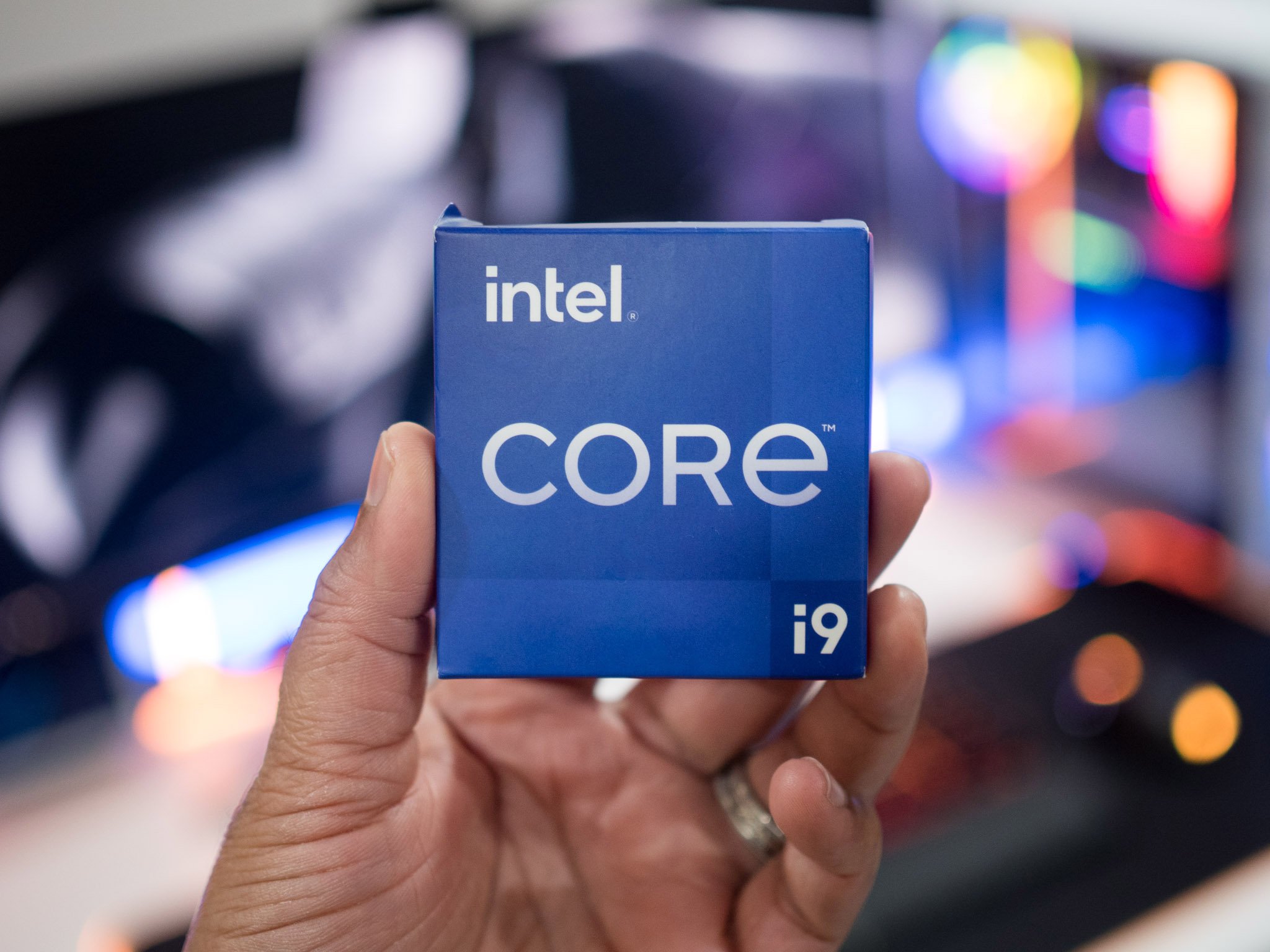Intel had a clearly defined tick-tock strategy: with every generation, we got a fabrication enhancement (tick) followed by a refresh of the microarchitecture to leverage the full gains of that node (tock). This has worked reliably all the way from 65nm to 14nm, and solidified Intel's position as the leading chip manufacturer in the world.
Then came 10nm. Intel just couldn't find a way to scale its 10nm node effectively, so it instead fell back to 14nm and focused on architectural changes to deliver performance gains with every new launch. What was meant to be a stop-gap measure ended up being a six-year undertaking that's continuing to this day — last year's Core i9-10900K was meant to be the last of the 14nm design, but Intel has continued to use the node in 2021 with Rocket Lake.
Although Rocket Lake is built on 14nm, it uses the Sunny Cove microarchitecture; initially designed for 10nm, the cores have been ported back to work on the existing 14nm node. Because of that, the Core i9-11900K has fewer cores than its predecessor — there's just not enough room on the die to accommodate all the cores, so Intel lobbed off two cores. As a result, the Core i9-11900K has eight cores and 16 threads, down from the 10 cores and 20 threads Core i9-10900K that we got last year.
With AMD making huge gains with the Ryzen 9 5950X and 5900X series, does it make sense to pick up the Core i9-11900K? Let's take a look.
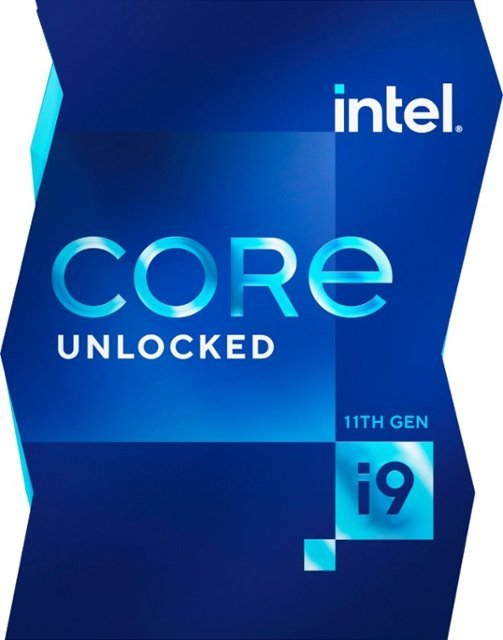
Bottom line: The Core i9-11900K delivers incredible gains in single-core results and is an excellent CPU for gaming. However, it uses too much power, has fewer cores than the last generation, and doesn't measure up to what AMD is offering with the Ryzen 9 5000 series.
Pros
- Stellar gaming performance
- Noticeable single-threaded gains
- Finally picks up PCIe 4.0
Cons
- High power consumption
- Fewer cores than predecessor
- No bundled cooler
- Falls behind AMD at multi-threaded tasks
- Expensive
Intel Core i9-11900K: Price and availability
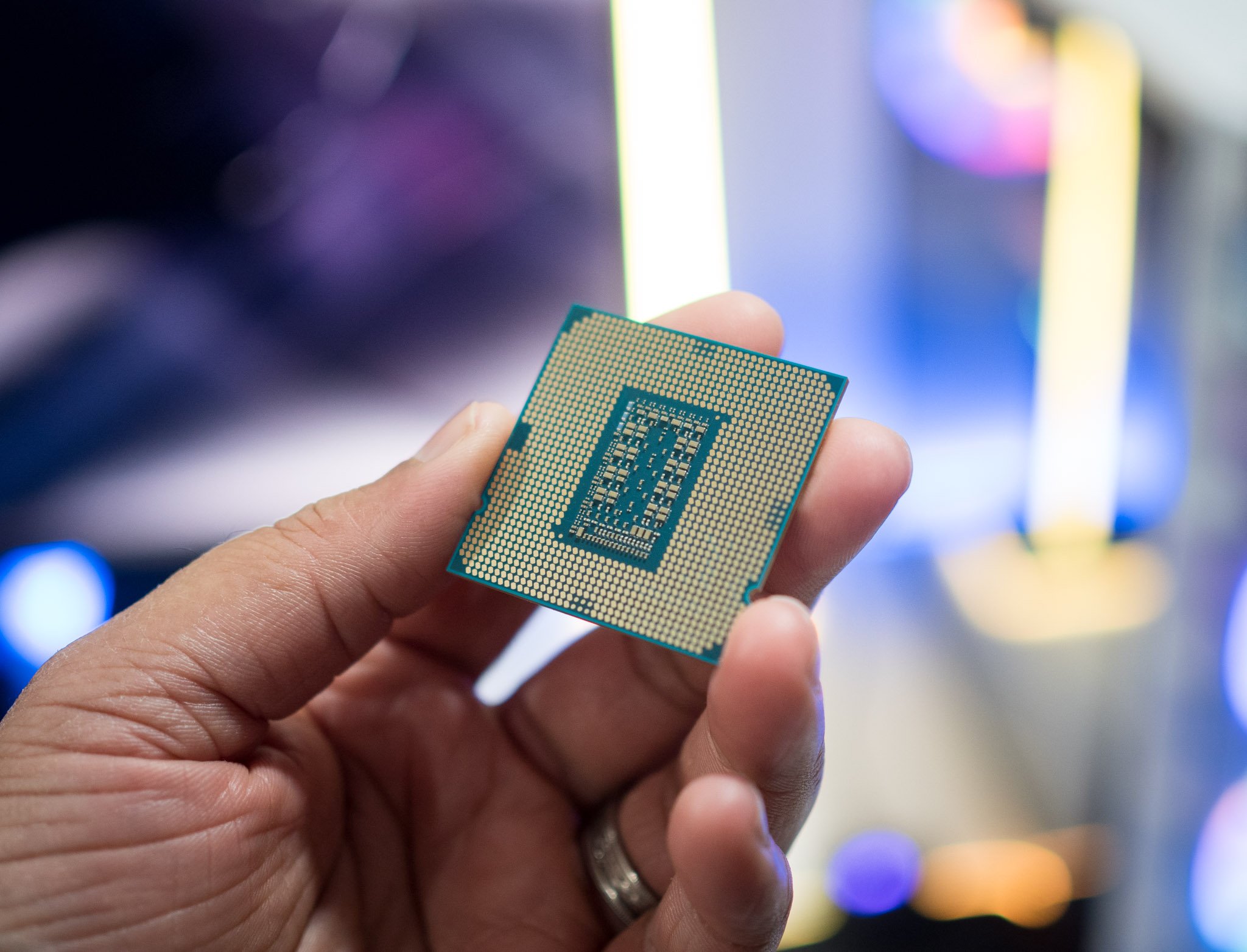
Intel launched the Core i9-11900K on March 30 for $540. As you're no doubt aware by now, the availability of PC parts continues to be a huge problem in 2021. The Core i9-11900K is already sold out at most stores, with a few Newegg listings retailing at $622 as of this writing.
The situation is unlikely to change for most of 2021. This isn't a problem that affects just Intel; AMD and NVIDIA are also unable to shore up demand for their latest products. We've rounded up the best places to buy NVIDIA's RTX 30 series cards, and as for Intel's Rocket Lake chips, you should be able to find them at Newegg and B&H Photo — just be ready to pay a premium.
Intel Core i9-11900K: Understanding Rocket Lake
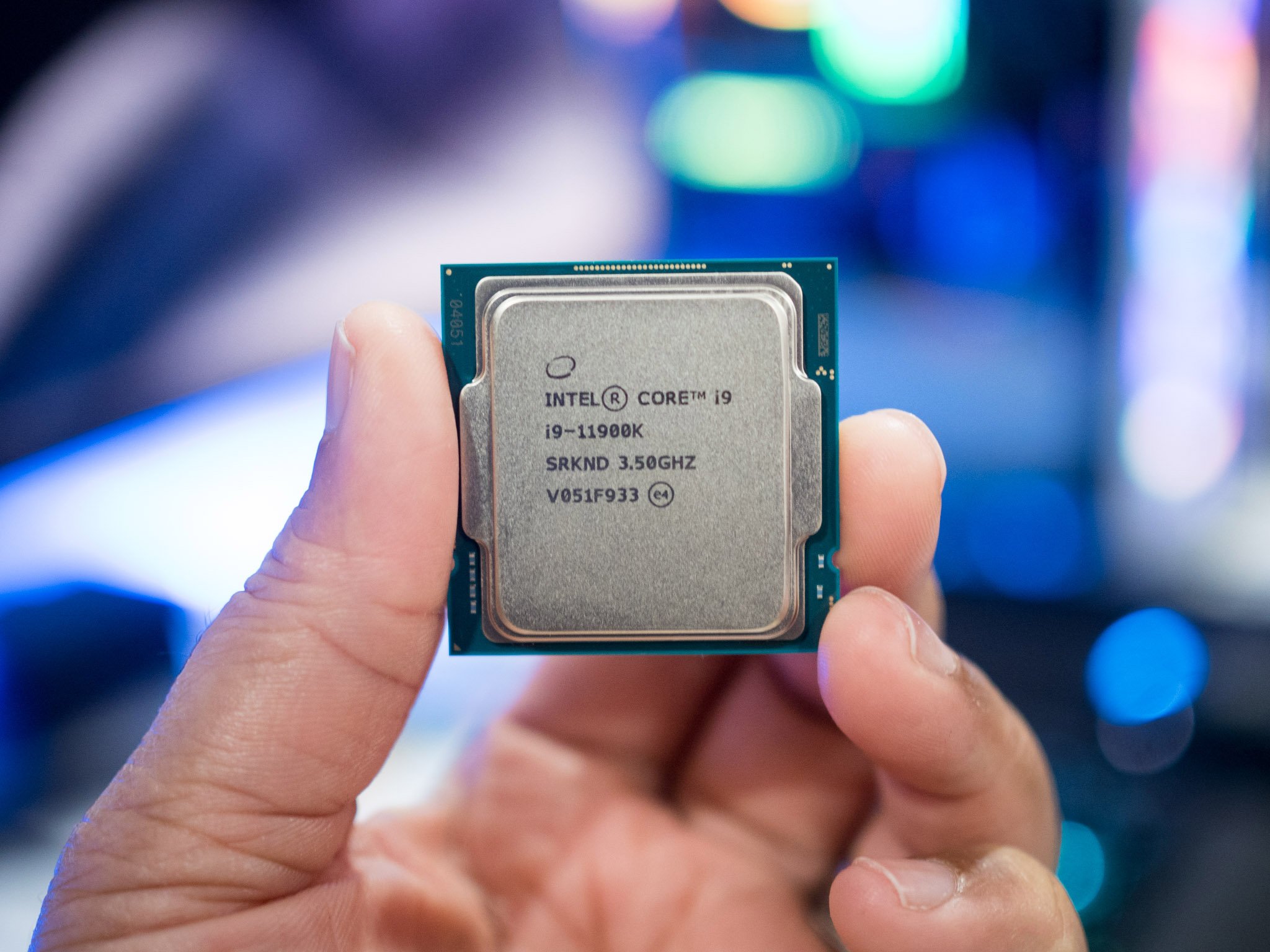
For Rocket Lake, Intel took the Sunny Cove cores from the 10nm Ice Lake platform and ported them back for the 14nm node. While Intel released 10nm node for notebooks, it has essentially been in a holding pattern when it comes to its desktop lineup. Last year's Comet Lake switched to an LGA1200 socket to eke out better performance by boosting power draw.
All the latest news, reviews, and guides for Windows and Xbox diehards.
With Rocket Lake, Intel had to rebuild cores designed for 10nm to fit its existing 14nm node.
Rocket Lake continues that holding pattern in that it is still a 14nm part, but with the new Sunny Cove architecture, Intel is touting 19% IPC gains. These cores were designed for 10nm, so Intel had to essentially rebuild them for use on its mature 14nm platform. As a result, even though the Core i9-11900K has fewer cores than its predecessor, its die size is larger.
Another new addition this time is Iris Xe UHD Graphics 750, and like the Sunny Cove cores, this design had to be ported from 10nm to fit the 14nm node. The Iris Xe platform offers huge gains in performance over the UHD Graphics 630 in the Core i9-10900K, but most customers looking to buy Rocket Lake designs will pair them with discrete GPUs.
Intel is retaining the same LGA1200 socket that we saw last year with Comet Lake, and the best motherboards based on Z490 work with Rocket Lake chips. I used Gigabyte's excellent Z490 Aorus Master for the better part of a year now, and it was fully compatible with the Core i9-11900K following a BIOS update.
As is the norm with a new generation, we get a new motherboard series, with Rocket Lake ushering the Z590 platform. There are minute differences between Z490 and Z590 motherboards — USB 3.2 Gen 2x2, Wi-Fi 6E, more PCIe lanes — so if you don't care about the upgrades on offer, you can save some cash and get a Z490 board for Rocket Lake.
Intel Core i9-11900K: Specs
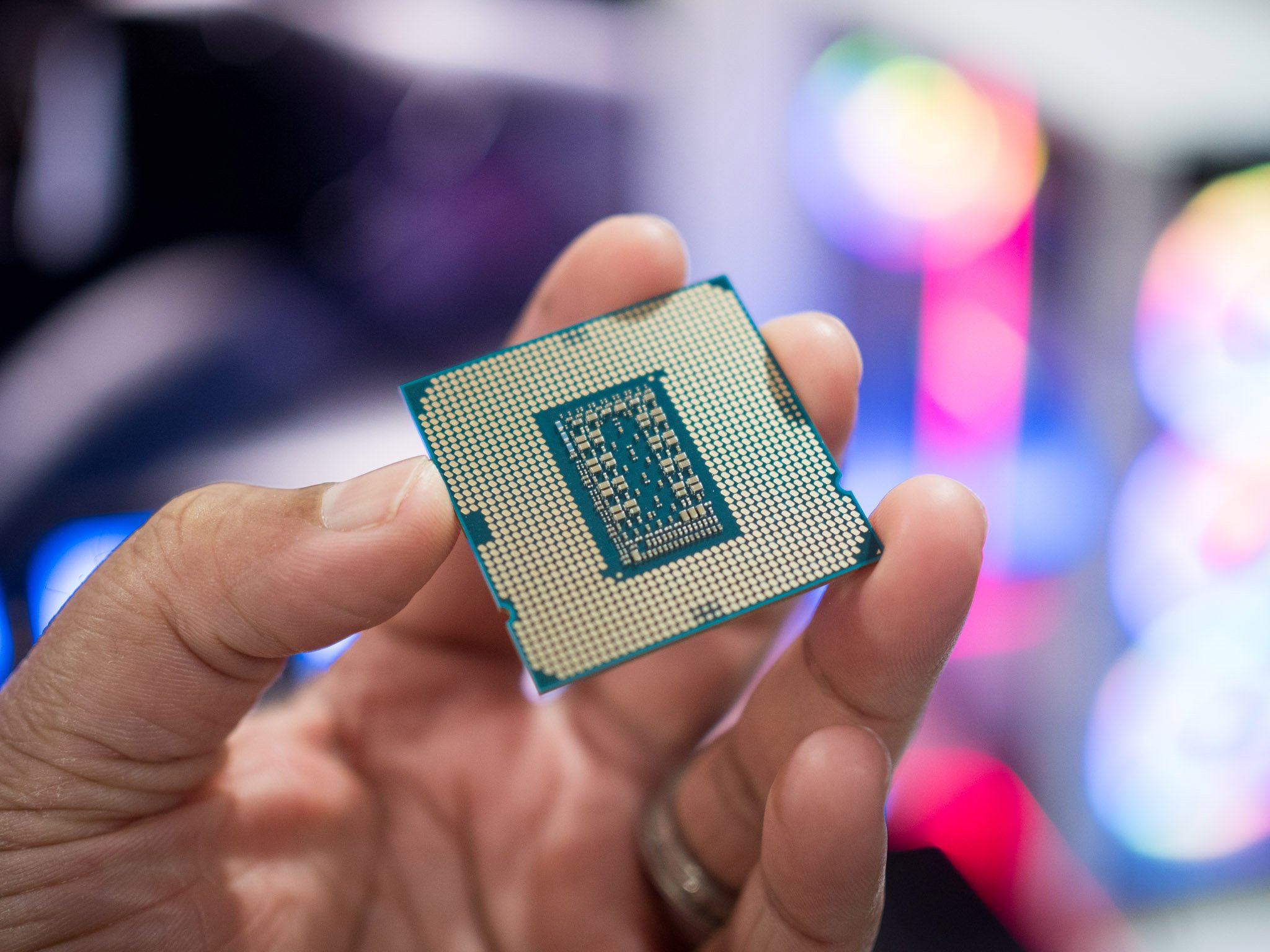
The Core i9-11900K forms the flagship offering in the Rocket Lake series, and like previous generations, Intel is offering designs in the Core i7 and i5 series that are much more affordable. The Core i7-11700K retails at $399 and has the same 8-core/16-thread layout as the 11900K, with the Core i5-11600K offering a 6-core/12-thread design for $262, a relative bargain.
As for the Core i9-11900K, Intel had no recourse but to go with an 8-core/16-thread design because of the challenges in porting Sunny Cave to 14nm. The CPU offers a base frequency of 3.5GHz, with boost of 4.80GHz for all cores. With TVB (Thermal Velocity Boost), it can hit up to 5.3GHz on a single-core, and 5.2GHz for two cores.
Like the rest of the K series, Intel does not provide a cooler in the box; you'll have to buy your own, and Intel recommends at least a 240mm liquid radiator for the Core i9-10900K. Here's the full breakdown of the hardware, and how it measures up to last year's Core i9-10900K and the Ryzen 9 5900X:
| Category | Intel Core i9-11900K | Intel Core i9-10900K | AMD Ryzen 9 5900X |
|---|---|---|---|
| Cores/Threads | 8/16 | 10/20 | 12/24 |
| Base Frequency | 3.5GHz | 3.7GHz | 3.7GHz |
| Boost (all cores) | 4.8GHz | 4.9GHz | 4.8GHz |
| Turbo Boost 2.0 | 5.10GHz | 5.10GHz | ❌ |
| Turbo Boost Max 3.0 | 5.2GHz (favored cores) | 5.2GHz (favored cores) | ❌ |
| Max Boost | 5.3GHz (single core) | 5.3GHz (single core) | ❌ |
| Memory | DDR4-3200 Up to 128GB | DDR4-2933 Up to 128GB | DDR4-3200 Up to 128GB |
| L3 Cache | 16MB | 20MB | 64MB |
| Integrated Graphics | Intel UHD Graphics Xe 750 | Intel UHD Graphics 630 | ❌ |
| PCIe | PCIe Gen 4.0 x 20 | ❌ | PCIe Gen 4.0 x 20 |
| TDP | 125W | 125W | 105W |
| Manufacturing Node | 14nm | 14nm | 7nm |
| Socket | LGA1200 | LGA1200 | AM4 |
| Price | $540 | $490 | $550 |
Intel Core i9-11900K: Performance
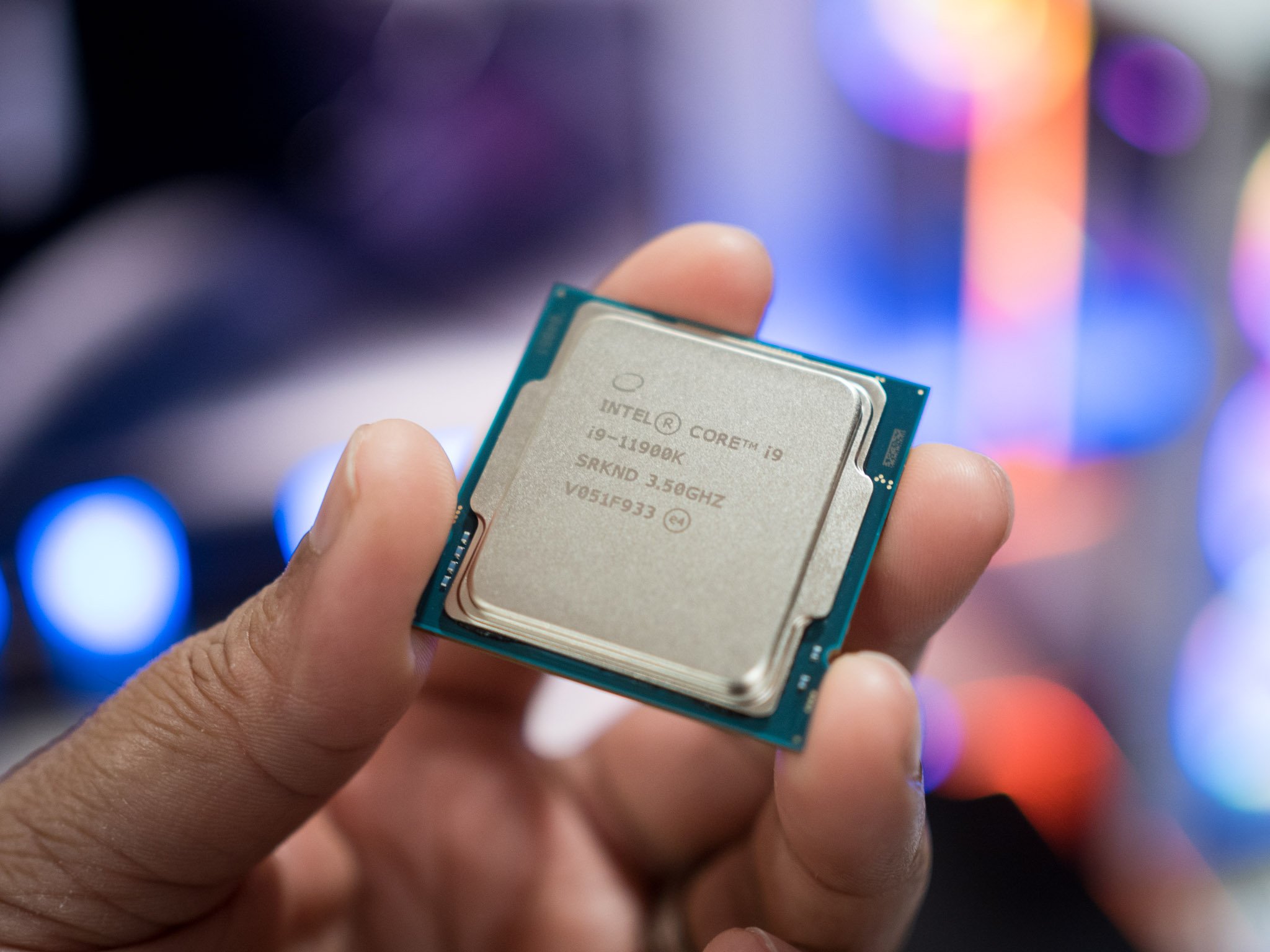
With the Core i9-11900K, Intel is touting significant gains in single-core performance from the previous generation. With AMD offering more cores and better efficiency figures, Intel is doubling down on gaming as the differentiator for its Rocket Lake designs.
| Category | Intel Core i9-11900K |
|---|---|
| Chipset | Intel Core i9-11900K |
| Motherboard | ASUS Z590 Maximus XIII Hero |
| Cooling | Corsair iCUE H115i RGB Pro XT |
| Memory | 4 x 8GB Corsair Vengeance Pro (DDR4-3000) |
| Storage | 1TB Samsung 870 EVO |
| Graphics | NVIDIA GeForce RTX 3080 FE |
| PSU | Corsair RM850x |
That was the case last year as well with the Core i9-10900K, so let's take a look at how the 11900K holds up in this area. I'm pitting Intel's latest chipset against the Ryzen 7 5800X and the Ryzen 9 5900X. Technically, the $540 Core i9-11900K is positioned closer to the 5900X, but the 12-core/24-thread handily beats Intel's offering in most workloads.
The 5800X with its 8-core/16-thread configuration is closer to the Core i9-11900K, but with this particular option available for $449, AMD is able to undercut Intel by some margin. Of course, this is considering any of these chipsets can be bought at retail; thanks to the shortage, both Intel and AMD chipsets are being sold at a premium.
CPU
Cinebench R15 (Higher is better)
| Chip | Single-core | Multi-core |
|---|---|---|
| Core i9-11900K | 254 | 2387 |
| Core i9-10900K | 226 | 2571 |
| Ryzen 7 5800X | 265 | 2618 |
| Ryzen 9 5900X | 270 | 3647 |
7-Zip Compression (Higher is better)
| Chip | MIPS |
|---|---|
| Core i9-11900K | 69,582 |
| Core i9-10900K | 77,461 |
| Ryzen 7 5800X | 83,357 |
| Ryzen 9 5900X | 118,232 |
Handbrake H.265 (Lower is better)
| Chip | Seconds |
|---|---|
| Core i9-11900K | 410 |
| Core i9-10900K | 392 |
| Ryzen 7 5800X | 415 |
| Ryzen 9 5900X | 302 |
The Core i9-11900K offers decent gains from the Core i9-10900K for single-core workloads, but it all starts to fall apart for multi-core use cases. Intel's latest flagship doesn't really hold its own in this area, and that is evident from the scores.
When it comes to gaming, Intel has a slender lead. For most 1080p games, the Core i9-11900K offers identical performance to last year's i9-10900K and the Ryzen 9 5900X and Ryzen 7 5800X. For 1440p and 4K gaming, there is a barely noticeable 2% uptick for the Core i9-11900K from the Ryzen 9 5900X, and honestly, when you consider just how much power the CPU consumes when running under load, it isn't a good look for Intel.
Intel is heavily relying on its boost algorithms to deliver increased performance figures, and that makes Rocket Lake even more power-hungry than the last generation. Using the same workloads, the Core i9-11900K consumes 5% to 8% more power than the Core i9-10900K. AMD is in a league of its own when it comes to energy efficiency, with the 7nm Ryzen 9 5900X and Ryzen 7 5800X offers anywhere between 15 to 20% better efficiency when running the same workloads as Intel.
Intel Core i9-11900K: Competition
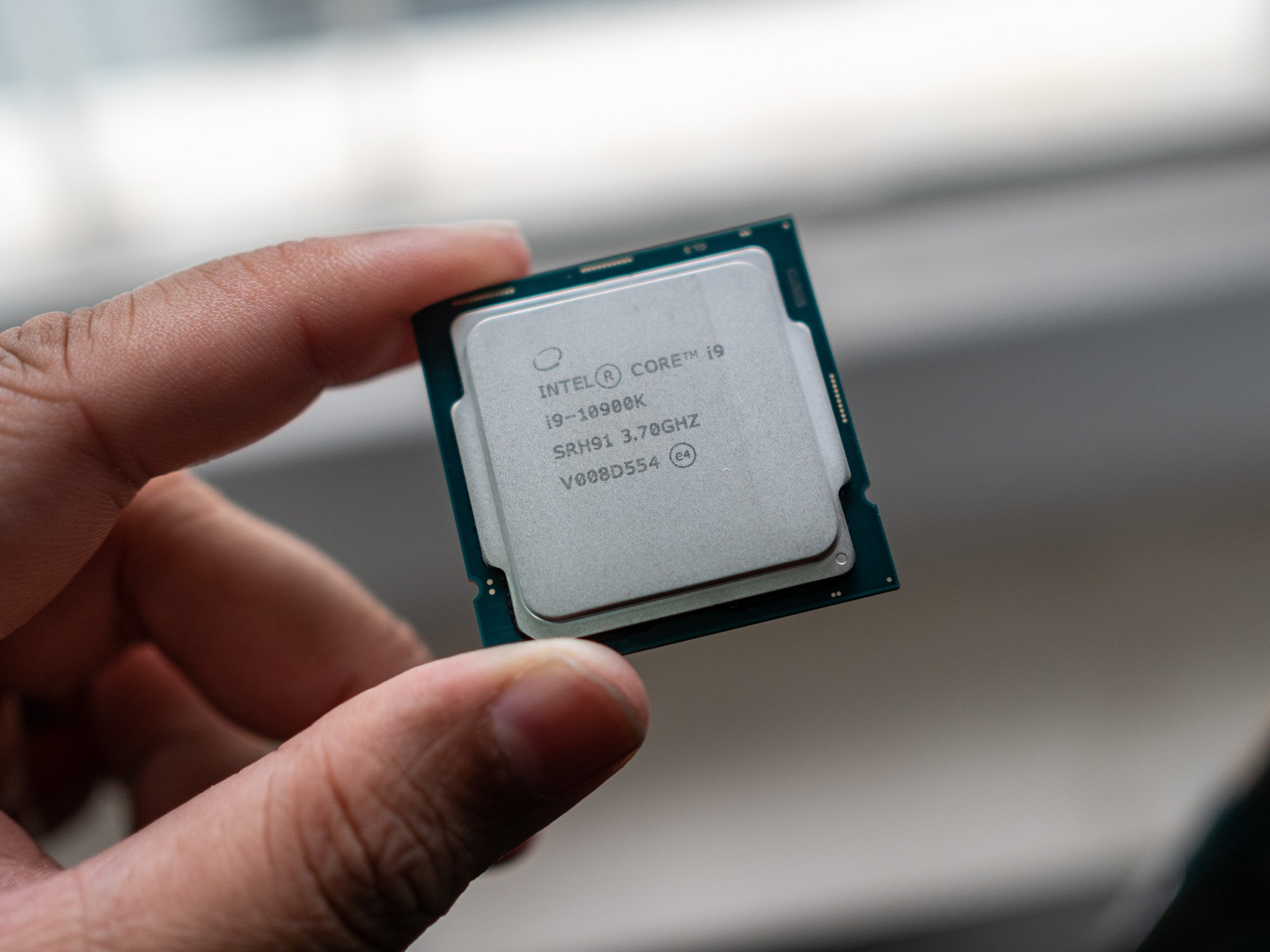
If you're looking to upgrade in 2021, the go-to option is AMD's Ryzen 9 5900X. The $550 CPU costs the same as the Core i9-11900K and delivers much better performance while consuming not as much energy as Intel's latest flagship. AMD is firmly in the lead with the current Ryzen 9 series, and honestly, it's not a fair comparison between the 5900X and 11900K even though they cost the same.
But if you're not willing to switch to AMD and want an Intel part, the Core i9-10900K is a solid option in 2021. The Comet Lake design is just as fast as the 11900K for multi-threaded use cases, and it holds its own for gaming as well. And because it has been in the market for longer, you can actually get your hands on a 10900K for under $500.
Intel Core i9-11900K: Should you buy it?
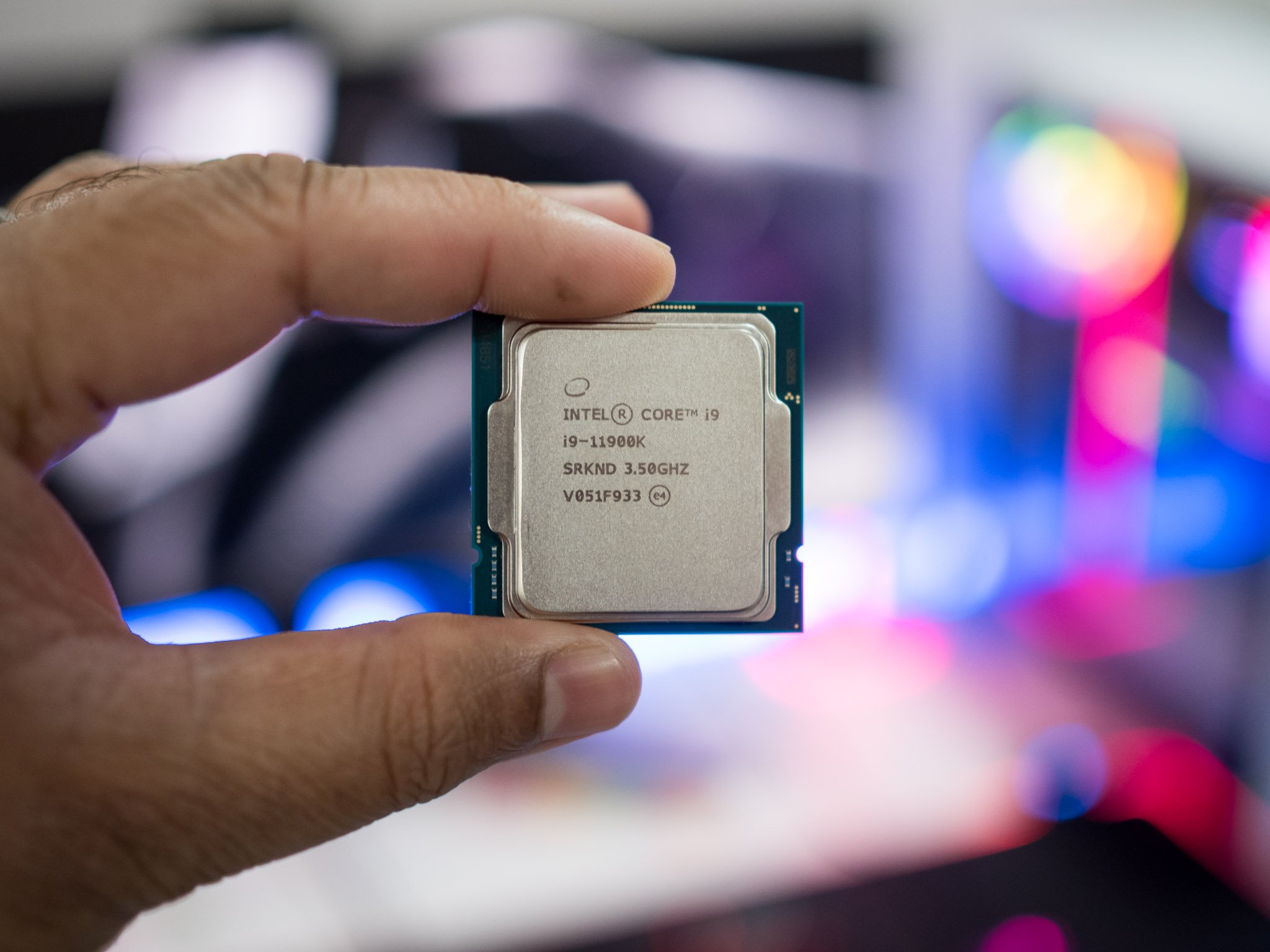
You should buy this if ...
You want an Intel CPU
The Core i9-11900K doesn't really offer a lot of upgrades over its predecessor, but if you're firmly in team blue's corner and need the latest and greatest, you'll want to pick this up.
You need the best single-core performance
Intel focused its attention on single-core performance with this generation, and the result is that the Core i9-11900K delivers the best single-core scores you'll find.
You should not buy this if ...
You need the most number of cores
The Core i9-11900K falls behind AMD's Ryzen 9 5900X and 5950X for multi-threaded workloads. Even last year's Core i9-10900K had ten cores, and if you need a desktop chipset that excels at multi-core use cases, you're better off picking up one of the options in AMD's Ryzen 9 series.
You need an energy-efficiency chip
The Core i9-11900K isn't really the most efficient CPU available today, and when it comes to energy usage, it fares even worse than last year's Comet Lake chipsets. The Ryzen 9 series runs rings around Intel in this area.
The Core i9-11900K isn't a bad CPU by any metric. By porting the Sunny Cove architecture to 14nm, Intel managed to eke out the last dregs of performance out of the 14nm node. The CPU offers exciting gains with single-core results, and we finally get PCIe 4.0.
But outside of single-core performance, the Core i9-11900K doesn't really measure up to what AMD is offering right now — or even last year's Core i9-10900K — and that makes it hard to recommend Intel's latest flagship chipset. Yes, it is great for single-core use cases and excels at gaming, but it is found to be lacking in multi-core scores and efficiency figures.
Going forward, Intel is making radical changes to its strategy to counter AMD's threat. Intel will serve as a foundry for other companies via the new Intel Foundry Services, but the bigger change is that Intel will start using external fabs to build upcoming x86 chipsets. That's a fundamental rethinking of how Intel operated over the last 25 years, and it should alleviate the issues the company has had in scaling its own 10nm and 7nm nodes.
It will be interesting to see how that pans out, but for now, what's clear with Rocket Lake is that AMD firmly wins this round. The Core i9-11900K is decent enough in its own right, but it just doesn't pass muster against the best that AMD has to offer. It's not quite at the level for our best processor for your custom PC collection. Now if only you can get your hands on the Ryzen 9 5900X.

Harish Jonnalagadda is a Senior Editor overseeing Asia for Android Central, Windows Central's sister site. When not reviewing phones, he's testing PC hardware, including video cards, motherboards, gaming accessories, and keyboards.
